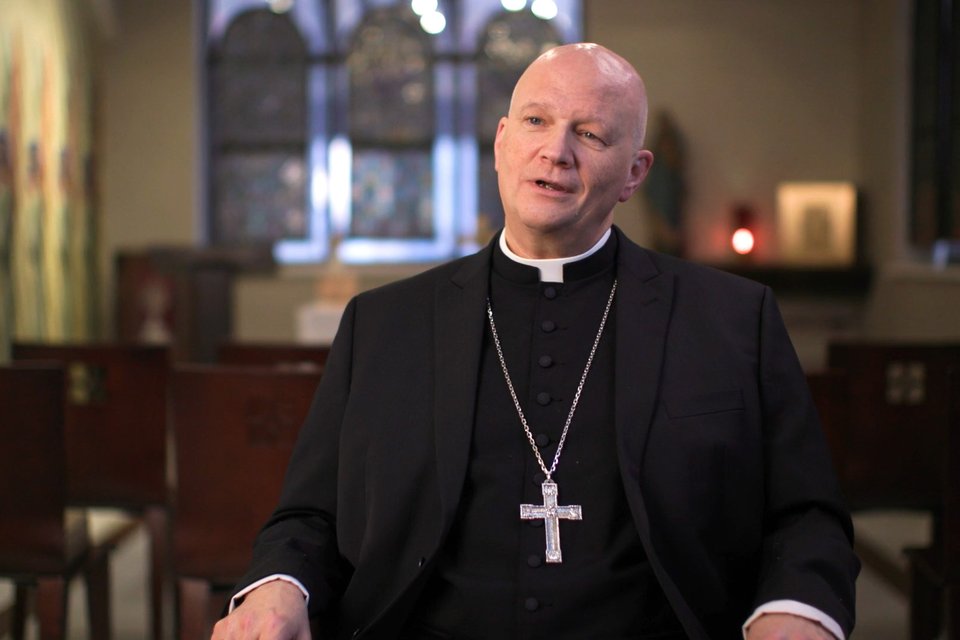NASHVILLE, Tenn. (CNS) -- With the reversal of Roe, Judy Orr, executive director of Catholic Charities in the Nashville Diocese, and the agency's adoption and pregnancy counseling staff expect an uptick in the need for those services.
"Our society is going to be compelled to provide more compassion and support for mothers who do not want to place their children for adoption," Orr said.
"We are going to have to develop systems that promote a more progressive approach to child rearing, such that it is not an either/or proposition for a mother/family faced with a new baby they do not feel they can manage," she told the Tennessee Register, Nashville's diocesan paper.
"In societies in the past, a multigenerational extended family helped raise the children, and there was a lot more 'sharing' of child-rearing responsibilities, so that the mother did not have to sever ties with her child altogether," Orr added.
This is why Catholic Charities will not only emphasize its adoption services but also its pregnancy counseling.
"I feel this is a prime opportunity for our agency to emphasize our pregnancy counseling program aside from adoption," said Julie Bolles, a Catholic Charities therapist who works with individuals and families.
"I believe we will have increased opportunity to counsel and provide support and, most importantly, provide education for women about their options in an unplanned pregnancy, so they can make the decision that is best for them," she said.
For their part, Tennessee's Catholic bishops pledged "to redouble our efforts to support mothers, fathers and children at every stage of life" and said they are praying "for all those facing pregnancies, both planned and unplanned."
In a joint statement, Bishops J. Mark Spalding of Nashville, David P. Talley of Memphis and Richard F. Stika of Knoxville said they welcomed the June 24 ruling in Dobbs and thanked the court "for its careful consideration of the constitutional issues surrounding abortion" and for ruling "in favor of the right to life for the unborn."
"Arguments before the court made it clear that our ever-expanding scientific knowledge has identified the fact that everything essential for a growing human life is present from the moment of conception," the bishops said.
"Only time and nourishment are necessary to bring that life forward, created in the likeness and image of God with the human dignity enshrined by the Creator in each of us as his children," they added.
The court's reversal of Roe puts abortion policy decisions in the hands of the states. At least half plan to ban or restrict abortions with this decision in place, and 13 states have "trigger" laws that were set to ban abortion if the Dobbs ruling reversed Roe.
Tennessee is one of those with such a law: Nearly all abortions will be illegal in the state within 30 days of the court's decision. The law includes an exception to protect the life of the mother.
In the Nashville Diocese, Catholic Charities is making sure women and couples throughout Middle Tennessee are aware of what the agency offers by updating its service materials and contact lists, and sharing them with area crisis programs, hospitals, OB-GYN offices, churches and schools.
"A lot of the women and couples we speak with come from referrals," explained Amanda Bennett, Catholic Charities supervisor of adoptions and pregnancy counseling.
"We provide education and support to women and couples and make sure they know what all of their options are" going forward, she said.
"It is about walking with the mother and empowering her to make the best decision in the midst of feeling overwhelmed, to give her that voice to be able to say what she wants," she added.
"We do want to increase services for families on the full spectrum, from providing counseling for an unplanned pregnancy, to mothers and couples that wish to make an adoption plan, and to those who have an unplanned pregnancy and want to parent but need support," said Kim Morris, Catholic Charities clinical director.
"It is about finding out how can we walk with them throughout their parenting journey and what supports do they need for their family to thrive?" she added.
Mulier Care offers a wide range of services to women facing a crisis pregnancy, both during the pregnancy and after the baby is born, including through its mobile unit, the Pregnancy Help Center, that travels to locations around Middle Tennessee offering pregnancy tests, ultrasounds and education about women's options.
"We certainly think an increase in demand for our services is possible in the event Tennessee is permitted to enforce a prohibition on elective abortions," said Paul Krog, co-director of the nonprofit organization.
Before the Supreme Court's ruling, most women the center encountered already had decided "to have an abortion or are strongly inclined to do so," he said.
In the aftermath of the ruling, "what that will look like precisely is hard to predict. It's a very different world than it was in 1973," he said. "The Pregnancy Help Center is going to try to find a way to help women in crisis pregnancies regardless."
Among the services Mulier Care offers women are free, lab-quality pregnancy tests, first-trimester ultrasounds and educational resources.
It also has a continuum of care program, which includes health care enrollment, free legal services, translation services, information regarding assistance for domestic violence, assistance finding adoption services, assistance working alongside other pregnancy resource centers, advocacy and help finding OB-GYNs.
"The pro-life movement in the United States is not only about advocacy, influencing policies and changing laws: This is only the tip of the iceberg. At the root of the effort is aiding the woman in making life-affirming choices for herself and her child," according to Mulier Care's stated mission.
"Assisting a woman in crisis needs to include not only helping her make the right decision to preserve the sanctity of life," it says, "but also improving her livelihood and helping her provide the best care for her newborn and herself."









